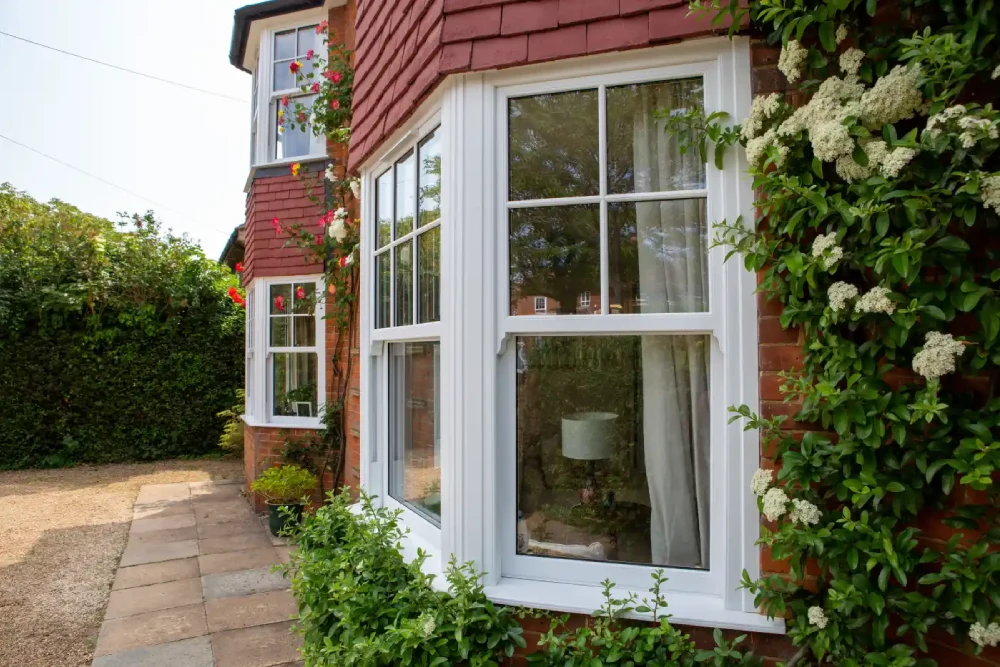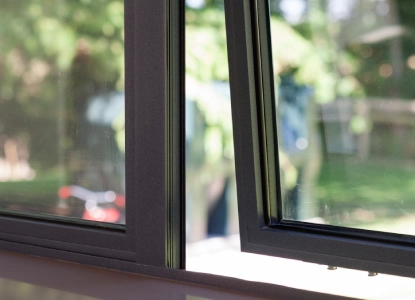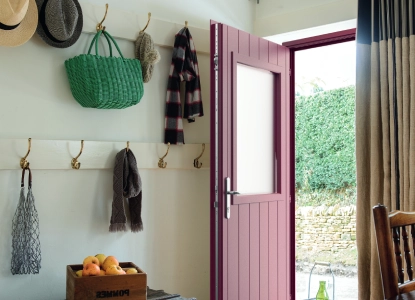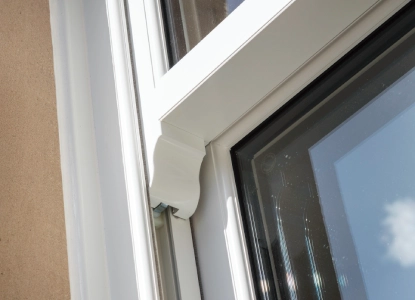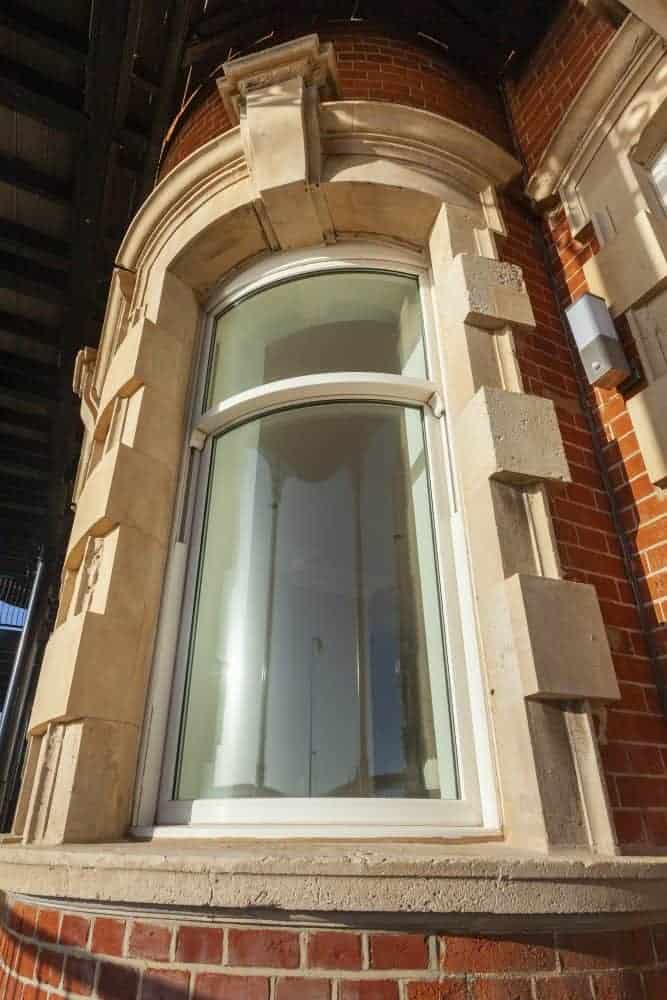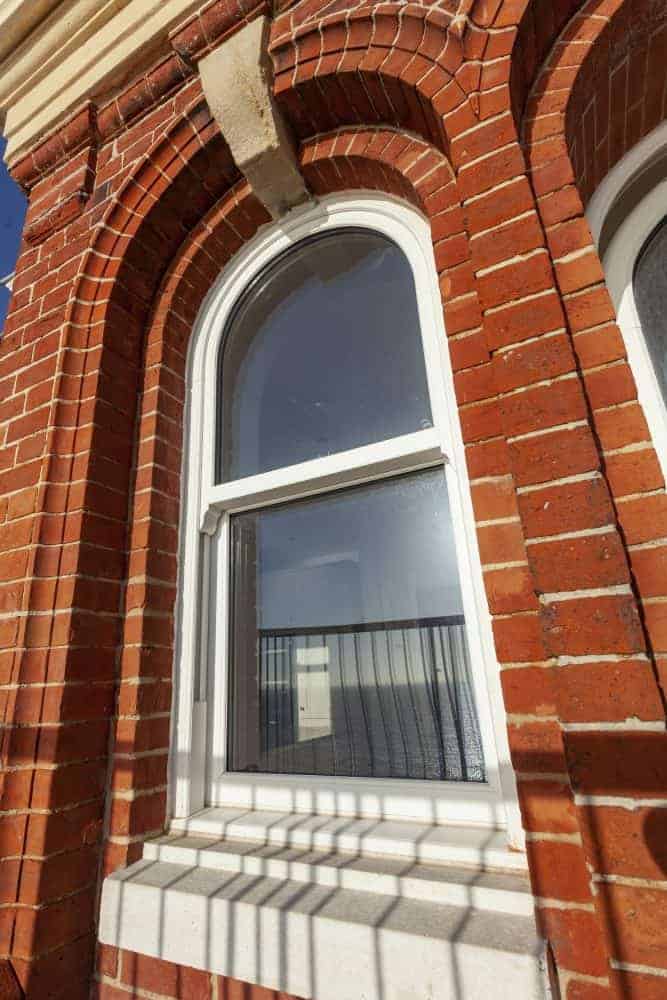Mouldy Window Frames – What Causes Them and
Steps You Can Take to Reduce Mould Build-Up
The Root of the Problem: Understanding the Causes
The primary culprit behind mould growth is moisture, and your windows, especially on the inside, provide an ideal environment for mould spores to thrive. Here are the main causes:
Condensation: Condensation occurs when warm, moist air comes into contact with a cold surface, like your window glass. This causes water droplets to form and often settle on your window frames, providing a damp environment perfect for mould growth.
Leaking Windows: If your windows are not sealed properly or the sealant around your window frame is broken, water can seep into your interiors. This dampness encourages the growth of mould around your window frames.
Poor Ventilation: A room with poor ventilation traps moist air, leading to a humid environment. Bathrooms, kitchens, and laundry rooms are particularly susceptible due to the excess moisture from cooking, washing, and bathing.
Which types of windows are more susceptible to mould build-up?
Mould can potentially develop on any type of window if the conditions are right. However, certain factors can make some windows more susceptible than others:
Single-Pane Windows: Single-pane windows are more susceptible to mould growth because they lack the insulation provided by double or triple-pane windows. The exterior cold easily affects the interior pane’s temperature, leading to condensation when warm interior air contacts the cold surface of the glass. This condensation can then promote mould growth.
Wooden Frames: Wooden frames, while not particularly prone to condensation, can absorb moisture if not properly sealed or if the sealant has worn off. This makes them potentially more susceptible to mould than vinyl or fibreglass frames, which are more water-resistant and less likely to foster mould growth.
Poorly-Sealed Windows: Regardless of the type of window, if they are poorly sealed, they can allow moisture to seep in from the outside, creating a damp environment conducive to mould growth.
Windows in High-Humidity Rooms: Windows located in high-humidity rooms such as bathrooms, kitchens, or laundry rooms are more likely to develop mould. The excess moisture in these rooms from cooking, washing, showering, etc., can lead to a buildup of condensation on windows, promoting mould growth.
Old Windows: Older windows can become susceptible to mould due to wear and tear over time. The seals may deteriorate, allowing moisture to seep in. Older wooden windows may have absorbed moisture over the years, and the paint or finish may have worn off, leaving the wood exposed to potential mould growth.
Tackling the Mould Menace: Prevention and Control
The key to mould prevention and control lies in addressing the moisture issue. Here are practical steps you can take:
Promote Ventilation: Proper ventilation is vital in reducing indoor humidity. Install exhaust fans in high-humidity areas like bathrooms and kitchens. Regularly open windows in other rooms to allow fresh air in and stale, moist air out.
Use a Dehumidifier: A dehumidifier can help in high humidity conditions by reducing the moisture level in the air, making your home less mould-friendly. This is especially useful in basements and other areas prone to dampness.
Regular Cleaning: Regularly clean your windows with a mould-killing solution. This removes mould spores before they have a chance to grow.
Insulate Your Windows: Proper insulation of your windows can help reduce condensation. The goal is to keep the window surface temperature from getting significantly cooler than the room air temperature. This can be achieved through thermal or double-glazed windows, which have insulating properties.
Fix Leaks: Regularly check your windows for leaks. If your window frames are wooden, look for signs of water damage or rot. If you find any, fix them promptly to avoid creating a hospitable environment for mould.
The Mould Removal Process
If mould has already made its way onto your window frames, don’t despair. You can remove it using a simple process:
Don protective gear: Wear gloves, a mask, and eye protection to avoid exposure to mould spores.
Make a cleaning solution: Mix one part bleach with three parts warm water.
Scrub the mould: Using a stiff-bristled brush, scrub the mouldy area with the cleaning solution until the mould is gone.
Dry the area: Once you’ve cleaned away the mould, use a dry cloth to wipe the area clean. Leave the windows open to dry completely.
Remember, if mould has penetrated deeper into the window frame material or the infestation is too large, you may need to replace the window frame or seek help from professionals.
Bringing it all together
Cliff House, Felixstowe
VIEW PROJECTFoxhill House, Chester
VIEW PROJECTUniversity of Sussex, Brighton
VIEW PROJECTVarndean College, Brighton
VIEW PROJECTFrom sash windows to aluminium bifold doors, our high-quality products are engineered and manufactured right here in Britain. We work with fellow UK-operated companies, Spectus Window Systems, Smart Systems, and Jack Aluminium Systems, to deliver only the very best to our trade, commercial and residential customers.
How much do French doors cost to install in the UK?
The cost of installing French doors in the UK varies depending on the size, material, and design. At Mercury Glazing, we offer competitive pricing tailored to your specific needs. Please contact us for a personalised quote.
How to fit door handles?
Fitting door handles can be a straightforward process. First, measure and mark the position on the door, drill the necessary holes, then attach the handle with screws. For detailed instructions or professional fitting services, feel free to reach out to us.
How to replace patio doors?
Replacing patio doors involves removing the old doors, preparing the opening, and installing the new doors. It's a task best handled by professionals to ensure a perfect fit and functionality.
How much do patio doors cost?
The cost of patio doors varies based on size, material, and design. Contact us at Mercury Glazing for a bespoke quote that matches your specific requirements.
How much are French doors?
The price of French doors depends on the material, size, and design details. We offer a range of options to suit various budgets. Please get in touch for a tailored quote.



